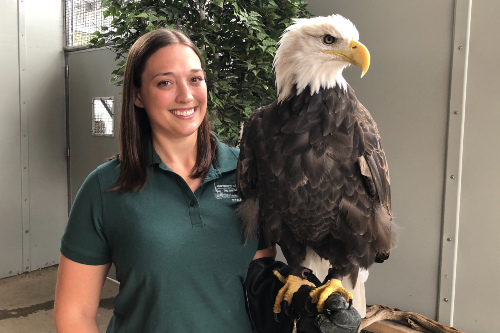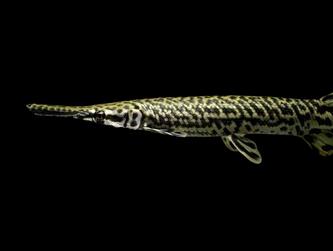
After a number of recent studies showcase the impact of lead on bald eagles, Dr. Victoria Hall, executive director of The Raptor Center (TRC), shares how TRC — one of the busiest raptor hospitals in the world — uses decades of medical data to learn more about lead poisoning in bald eagles.
Victoria Hall, DVM MS DACVPM
“The story of bald eagles in the United States is one of success but ongoing work is needed to maintain that success. The bald eagle’s story shows how we can work together across all sectors to bring a species back from the brink of extinction, however; while eagle populations have rebounded, The Raptor Center is on constant alert for the next threat to these animals and to our shared ecosystems. One of the primary threats to eagles remains lead poisoning.
Approximately 85-90% of all the eagles brought into the center have a measurable level of lead in their blood, and we know no level is safe for a biological system. Twenty-five to thirty percent of these birds will have fatal levels. The incredible amount of lead poisoning that we see in eagles is also an indicator of the amount of lead that is in our environment—which leads to larger concerns at the human, animal, environmental health interface.
Recent studies have shown that lead poisoning is not just a problem for the individual bird but could have lasting population-level impacts to the species. Humans have the power to halt this threat, and help ensure the health of the environment we all share, through simple behavior changes like hunting with non-lead ammunition.”
Dr. Victoria Hall is the executive director of The Raptor Center and has expertise working on complex global challenges at the intersection of human, animal, and environmental health, as a wildlife veterinarian and as an epidemiologist.
Contact
Rachel Cain
[email protected]
-30-
About the College of Veterinary Medicine
The University of Minnesota College of Veterinary Medicine affects the lives of animals and people every day through educational, research, service, and outreach programs. Established in 1947, the University of Minnesota College of Veterinary Medicine is Minnesota’s only veterinary college. Fully accredited, the college has graduated over 4,000 veterinarians and hundreds of scientists. The college is also home to the Veterinary Medical Center, the Veterinary Diagnostic Laboratory, the Leatherdale Equine Center and The Raptor Center. To learn more, visit vetmed.umn.edu.
About “Expert Alert”
University of Minnesota experts can provide commentary, insights and opinions on various news topics. Find selected experts on the University’s Experts Guide or send requests to [email protected].
- Categories:
- Agriculture and Environment





